This article focusses on the problems of rural India and how startups have the opportunity to fill these gaps. Problems like Healthcare, Banking, Electricity, Waste Management, Skill Development etc are still prevalent on a large scale. We have also listed startups who are working in this area.
In our article on New Types of tourism in India, we talked about how beautiful the region around Sundarnagar, a small place in Jamshedpur, Jharkhand was. But this region and many others like Sundarnagar are still battling multiple issues which need to be solved more proactively. For example, the place has Zomato delivering food at the doorstep, but to have cash in hand is a nightmare. This is because in the 40 km perimeter of the area, there are only about 2-3 ATMs, at a distance enough for a daily worker to lose wage if he has to get some cash out of an ATM.
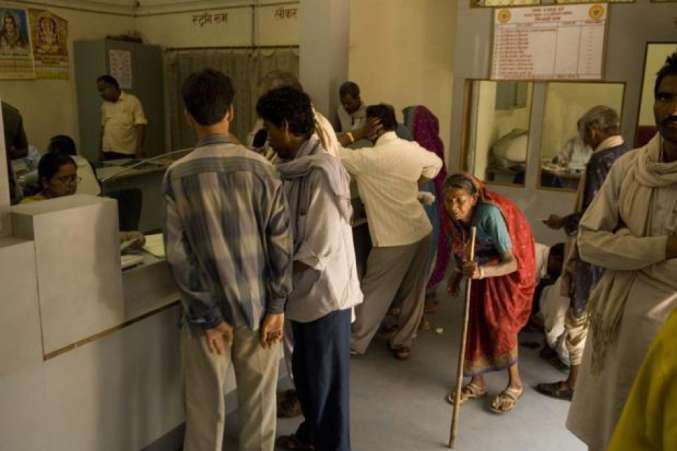
Having said that, we need to think hard why does the startup market always cater to the needs of the middle, upper-middle and high class? If you look around, most of the startups focus on clothing, food, or even rented housing for the ones who are relocating. Preparing for a party? Go to Myntra or Jabong. Feeling hungry? Get the latest deal on Zomato. Shifting to Delhi from Lucknow? Housing.com is here to help!
While India continues to be one of the fastest growing economies in the world, with our recent article showcasing how we are removing poverty at such a fast pace, the fact remains that there are many challenges that are unaddressed. In order to solve these problems and challenges, there is a need to engage the youth in being ‘woke’ in true sense. Needless to say – we need entrepreneurial leadership, as well as domain knowledge to eradicate the issues plaguing the country. The right combination of talented individuals having expertise in different fields, along with political backing can result in out-of-the-box solutions.
Let’s look at some of the areas which can be taken up as startup ideas to benefit and bring changes in the society –
1. Instant access to healthcare
A good healthcare is one of the most important needs that needs to be fulfilled. According to the government reports, about 70 percent of the population falls to poverty because of out-of-pocket expenditure incurred in primary health care. The rural areas need to have at least one Primary Health Care Centre, but the fact remains that most of them have to go to the district hospitals by incurring a loss of one day labor, and there is no guarantee that they will get the services from a doctor.
Health-based startups, thus, are solutions that India needs. Smartphones and internet penetration is increasing at an exponential rate, and thus, can be utilized in making a remarkable change in Rural India. The startups can utilize the gap of primary healthcare in rural areas, to enjoy some profits and bring changes there too.
Real-life example
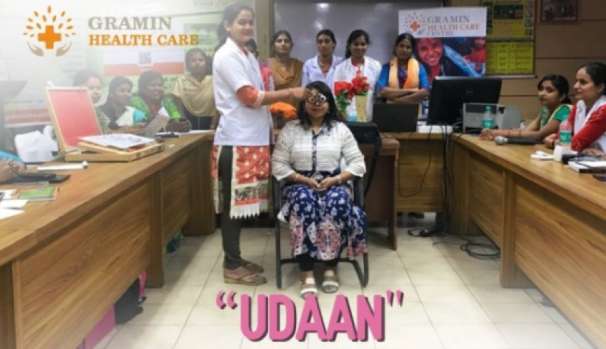
Tap and track your sugar level with a single click on screen, download at cardio-health journal, or search for cancer clinical trials. How about you just book a doctor’s appointment, who can arrive to your door with his team? All this, of course, at an affordable price. This is where Ajoy Khandheria and his Gurugram based startup, called the ‘GRAMIN HEALTHCARE’, have made a remarkable change. The brick and mortar kiosks are frequently visited by villagers, which are built by his startup. The centre consists of nurses, doctors, who perform diagnosis using telemedicine. A health card is given to each patient, with his/her medical history being digitally ascribed to the details for the card. There are a total of 120 centres in the Hindi-heartland of the nation.
2. Banking problems
As we mentioned in the beginning of this article, there are a lot of issues related to banking in rural India. In Spite of the various strides being made by Pradhan Mantri Jan Dhan Yojana, the issue of last mile connectivity continues to pose the real issue of rural banking. The Jan Dhan Yojana scheme which was launched by PM Modi in 2014, has increased the number of bank accounts from 53 percent in 2014 to a whopping 80 percent by 2017- World Bank Data. But this hasn’t necessarily translated into financial inclusion, especially the population in rural India. Also, most low-income rural families prefer to transact in cash, or store any savings that would be easily accessible.
Real-life example
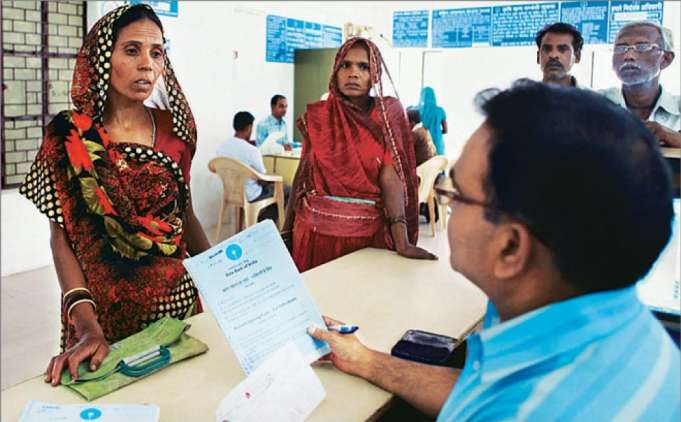
Kaleidofin is a startup who looked at this gap. The focus on building a tailored solution where the details of a person who wants to save money is inputted post which the in-built algorithm analyze the risk profile. The factors that they consider include occupation, family income, skills, probability of natural disasters, along with saving account information.
This would help a person from rural India, say for example, save a minimum of Rs. 500 a month for three years, which can be invested in financial service companies that can supplement the family expenses in the future. This helps in a very efficient saving and investment option, which is mostly unknown rural India.
3. Electricity in Rural India
Imagine being in the outskirts of rural Bihar, with no electricity and mosquitos killing you. You have no other option but to either abuse the Government in power, or cover yourself in a bedsheet and sleep on the roof, a practice quite common in the villages of Bihar and Uttar Pradesh.
This points towards the one solution that everyone is looking for – reducing emissions, along with increasing energy consumption, to provide electricity to all. After all electricity is not a luxury but a necessity now. Along with this it is equally important balance growth and environmental concerns arising out of coal-based stations powering the rural and urban India. What can be better than startups focussing on building cleaner technology using resources of the same village they would provide electricity to?
Real-life example
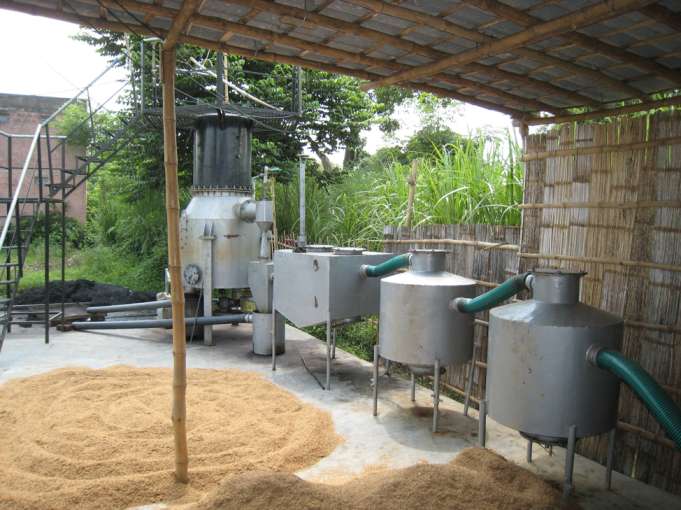
Husk Power Systems, a Bihar-based startup, was founded by Manoj Sinha back in 2008. The company is playing a pivotal role in providing its thousands of rural people, with the proprietary technology invented by him. The company generates electric energy from rice-husks. Rice-husk is the waste product of rice. The rice hullers are used to separate husks as chaff from the newly harvested rice. This generates electricity using a biomass gasifier, which further creates a fuel from rice husks. The fuel is clean, and is being used to provide electricity to the village at an affordable price. Can we replicate the model in the villages around India?
4. Waste Management in Rural India

Citizens in most cities of India might have the facility of municipal corporation people coming to their doorstep every morning, to pick up trash from our homes. But have you ever imagined the amount of waste generated in Rural India? Just think where the dry and wet waste gets deposited in rural India?
Sanitation is a big issue in both rural and urban India, but while the ones earning or living in a society have someone to look after it, the same isn’t true in villages. Most of the waste gets dumped outside the house in a plot which is empty, or where house haven’t been built. This has led to many sanitation related diseases, including the issue of malnutrition among children. So the question is, are there startups working on this model?
Real-life example
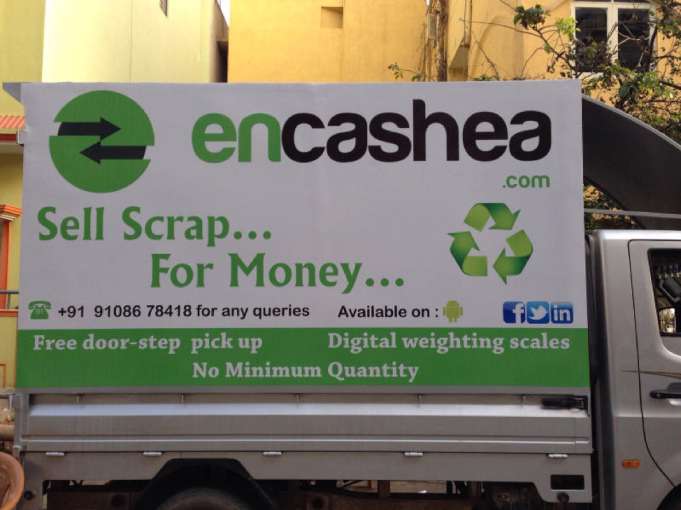
EnCashea is a startup of IIT alumni, which focuses on a doorstep scheduled pick-up facility. This facility can be accessed by a mobile application. Considering the amount of fertilizers being used by farmers in the villages, startups like this can also focus on making compost out of the organic waste being generated by individual families, including flowers and fruits offered to the nearby village temple.
This compost can not only be used to usher a new wave of organic farming, but also can be a good source to supply the organic food to the urban audience, an idea that is being called by experts as a new domain in the startup market. It can also be a great source of income for the farmers. Youth can also focus on this market and stop the migration issue from rural to urban India.
Recommended Story – Waste Management in India
5. Skill-India issue among women in Rural India
Since there are so many startups which focus on mobile application based operations, how about we focus on the most important thing that forces the youth from rural India to go and lead a life of misery in the cities?
According to Sharda Prasad Committee, only about 1 million students were able to gain employment of the 3 million who secured skills under the various schemes of Skill India. Adding to this is the fact that only about 20 percent of the people who have acquired skills under the flagship scheme, are from the rural areas. Now can you imagine the number of women in the rural areas who are skilled? Needless to say, the amount is abysmally low.
So, a startup idea can be to focus on the much needed skilling of Indian women from rural India at a reasonable rate, following which placements can be provided to their own organization, ushering a new era of New Women in New India.
Real-life examples

Neev is an organization which is working among the rural women of Shivpuri in Madhya Pradesh, with an aim to increase the skills among them and turn them into assets. One of the first projects that they are engaged in is making bags out of used newspapers. The local stores are the source of their raw material. After procuring the same, they make gift bags, file folders, and even diaries and greeting cards out of the newspapers. About 25-30 women from around the villages across Shivpuri work with this organization.
What can be better than rural women being empowered with a cause which promotes recycling too? That’s what we call environmental engenderment.*
So what do you think of the list? Do let us know in the comment section below.
*engendered here means including all genders of the society in environmental protection.


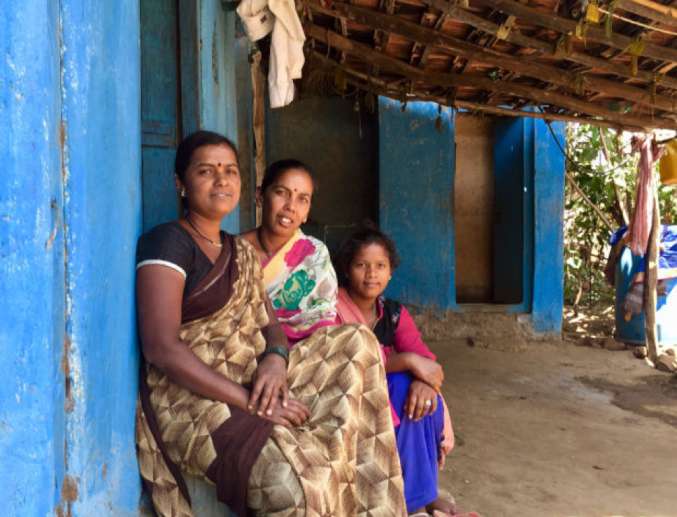








Even i m also from jamshedpur , but i m am totally chhattisgarhi from last 10 years, hear i started working with government project and i was like something missing so i decided to do something for women for children as they are not aware about what exactly going on, actually they don’t dream so they are ok with everything, every Sunday i visit villages where i teach students and i made a small group of women but i am very confuse what to start with that small group.
Great to hear about this initiative. Every village in India has its IP. We just have to look for it and find it. Look for the IP in your village. They may do some interesting handicrafts, some local medicine, some food items which are unique, some material which is unique etc. Once you have found it, it is all about branding and marketing. You can sell through any of the large e-commerce platforms including WhatsApp and facebook. All the best!
Nice one
Even I belong to a small town, working at a place far away from home. Have realized that maybe I wouldn’t get enough opportunities to go back home. We move ahead but the villages never move ahead. I wish the youth read this and get to know ways to be alive and happier, in a place they have lived always